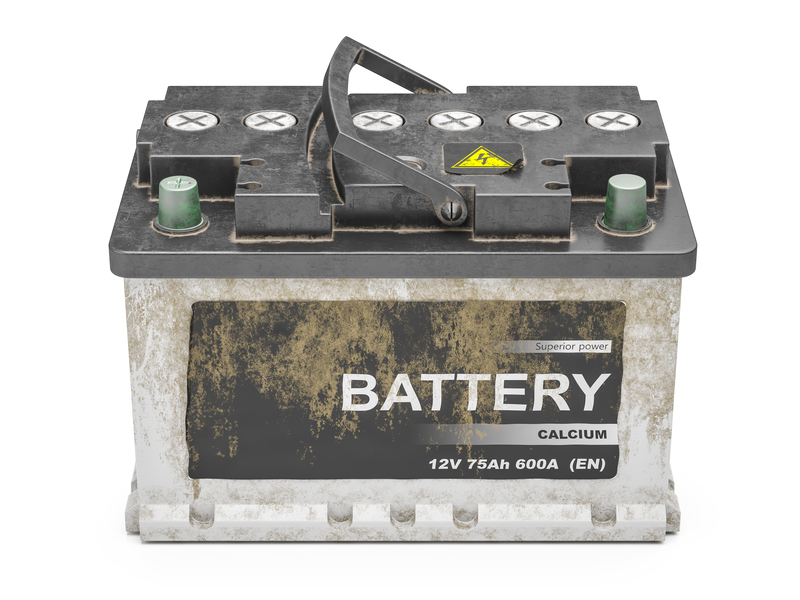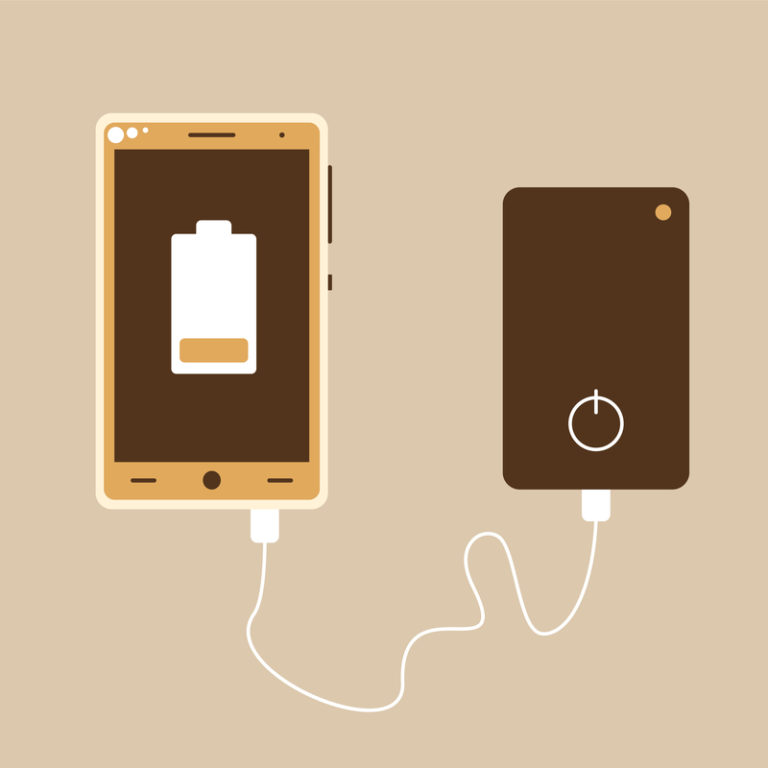Battery Smells Like Rotten Eggs: What It Means and How to Fix It
Battery smells like rotten eggs can be a common and concerning issue for many people, especially those who rely on batteries for everyday use. The unpleasant odor is often a result of a chemical reaction within the battery, which can indicate a more severe problem. This issue should not be ignored, as it could lead to potential dangers, such as leaks or explosions.
In this article, we will explore the possible causes of battery smells like rotten eggs, the associated risks, and what steps you can take to prevent and address this issue. Whether you are dealing with a car battery or a household battery, understanding the root cause of the odor can help you avoid costly damages and keep you and your loved ones safe.
So, buckle up and get ready to dive into the world of batteries and their distinct smells. We will walk you through everything you need to know, from the science behind the odor to practical tips on handling this issue effectively.
Why does my battery smell like rotten eggs?
Hydrogen Sulfide Gas
The root cause of this odor is hydrogen sulfide gas, which is produced when sulfuric acid in the battery breaks down. This gas has a distinct smell, similar to rotten eggs or sulfur, and can be harmful to humans if inhaled in large quantities.
High Temperatures
Exposure to high temperatures can speed up the breakdown of sulfuric acid and increase the rate of gas production. This is why batteries often emit a more pungent odor in hot weather or when used in devices that generate heat, such as laptops or smartphones.
Other factors
Several factors can contribute to the breakdown of sulfuric acid in a battery, including overcharging, undercharging, and exposure to high temperatures. For example, overcharging a battery can cause the electrolyte inside to heat up and evaporate, leading to a buildup of hydrogen gas. On the other hand, undercharging can cause the formation of lead sulfate crystals on the battery plates, reducing their ability to hold a charge and increasing the risk of gas buildup.
Is a Battery That Smells Like Rotten Eggs Dangerous?
Yes, a battery that smells like rotten eggs can be dangerous. Hydrogen sulfide gas is toxic and can harm humans and animals if inhaled. In addition, the gas is highly flammable and can pose a fire hazard if it builds up in an enclosed space. Therefore, if you notice a strong smell of rotten eggs coming from your battery, you must take action immediately.
How to Fix a Battery That Smells Like Rotten Eggs?
If your battery smells like rotten eggs, there are a few things you can do to fix the problem. Here are the steps you should follow:
Identify the Source of the Problem
The first step in fixing a battery that smells like rotten eggs is to identify the source of the problem. Check the battery terminals and cables for any signs of corrosion or damage. You can clean the terminals with baking soda and water if you see any corrosion.
Check the Electrolyte Level
The electrolyte level in the battery should be between the “minimum” and “maximum” marks on the side of the battery. If the level is low, you can add distilled water to bring it up to the proper level.
Charge the Battery
If the battery is not fully charged, it can produce excess hydrogen gas, leading to the smell of rotten eggs. Use a battery charger to charge the battery fully.
Replace the Battery
Lastly, if the battery is old or damaged, it may need to be replaced. A battery that is past its useful life can produce excess hydrogen gas, which can cause the smell of rotten eggs.
How to Prevent a Battery from Smelling Like Rotten Eggs?
To prevent your battery from smelling like rotten eggs, there are a few steps you can take:
Maintenance
The first and most crucial step is ensuring your battery is properly maintained. This includes keeping it clean, free of dirt and debris, and checking it regularly for signs of damage or corrosion.
Proper Charging
Another crucial step is to ensure that your battery is charged correctly. Overcharging or undercharging a battery can produce excess hydrogen sulfide gas, which can cause the unpleasant odor of rotten eggs. To prevent this, always use a charger specifically designed for your battery type and follow the manufacturer’s recommended charging procedures.
Maintain Proper Electrolyte Levels
Check the electrolyte level in your battery regularly and add distilled water as needed to keep it at the proper level.
Battery desulfator
One of the most effective is to add a battery desulfator to your charging routine. This device helps remove the sulfation buildup on the battery’s lead plates, which can reduce the production of hydrogen sulfide gas and the resulting odor.
Keep the Battery Clean
Corrosion in the battery terminals can cause excess hydrogen gas to be produced, which can lead to the smell of rotten eggs. Keep the battery terminals and cables clean and free from corrosion.
Replace Your Battery When Necessary
If your battery is old or damaged, it may need to be replaced. A battery that is past its useful life can produce excess hydrogen gas, which can cause the smell of rotten eggs.
Signs You Need to Replace Your Battery
If you are experiencing any of the following symptoms, it might be an unmistakable signal that it’s high time to mull over the idea of swapping out your battery. But conversely, these telltale signs could indicate that your battery is no longer operating at peak performance and could be inching closer to the end of its lifespan.
Age
Its age is one of the most notable signs that it’s time for a battery overhaul. If your battery is beyond three years old, it’s more likely to be vulnerable to failure and may not be as efficient in retaining its charge as it once was.
Low Charge
Another conspicuous indication is if your battery still holds a low charge even after being fully charged. This could imply that your battery can no longer store and retain energy efficiently and is losing its power-holding prowess.
Slow Ignition
If your car or device is slow to ignite, it could be due to a faulty battery. As the battery ages, its capability to supply the requisite power to start an engine or device could weaken, causing delays or sluggish starts.
Corrosion
It’s equally vital to conduct regular inspections on your battery terminals. If they become corroded or damaged, it could hinder the battery’s ability to provide power, thereby leading to further complications.
Damaged Case
If you observe a bulging or cracked battery case, it’s a blatant signal that the battery requires replacement. But, of course, this damage could result from overcharging, extreme temperature variations, or other factors.
If you spot any of these indicators, it’s imperative to have your battery assessed by an expert. They can provide insights on whether it’s the right time to replace your battery or if it can be fixed, saving you money in the long haul.
Conclusion
A battery smell that resembles rotten eggs is a clear indication of a potentially dangerous problem. If left unaddressed, this issue can lead to serious consequences, such as explosions or fires. However, it is possible to remedy the situation and ensure your safety with proper care and attention. Following the steps outlined in this article, you can identify the root cause of the smell and take the necessary actions to resolve the issue. Remember, always prioritize your safety and seek professional assistance if you need clarification on any aspect of your battery’s condition.
FAQs
Can I still use a battery that smells like rotten eggs?
While some people might assume that the smell is harmless, it’s a sign that the battery is experiencing some severe problems that need to be addressed. Failure to do so could lead to a dangerous situation in which the battery becomes unstable and potentially explosive.
Can a battery explode if my car battery smells like rotten eggs?
Despite the potential dangers associated with a battery that smells like rotten eggs, many people may wonder whether an explosion is possible. While the odds of an explosion occurring are relatively low, it’s still a good idea to take immediate action if you detect this smell. This is because the hydrogen sulfide gas that the battery produces can be both toxic and flammable, which means there’s always a risk of serious injury if the situation is not addressed promptly.
How often should I check my battery for issues?
To prevent battery-related accidents from occurring, it’s essential to maintain your battery correctly. This includes checking it regularly for any signs of damage or corrosion and having it inspected by a professional at least once a year. By taking these simple steps, you can ensure that your battery remains in good condition and avoid any potential safety hazards.
Can it be dangerous if my battery smells like eggs?
It can indicate a serious issue if your RV battery smells like rotten eggs. The smell is often caused by hydrogen sulfide gas, produced when the battery overheats or experiences other damage. Inhaling high concentrations of this gas can irritate the eyes and respiratory system, as well as nausea, dizziness, and even unconsciousness.
Can I clean my battery terminals with vinegar?
While some people may think vinegar is an effective cleaning agent, it’s not recommended as it can cause damage to the terminals over time. Instead, a solution of baking soda and water is a much safer and more effective option.
How long should a car battery last?
Typically, a car battery can last between three to five years, depending on various factors such as usage and maintenance. However, if your battery is over three years old, it’s a good idea to have it checked by a professional to ensure it’s still in good condition. By taking these simple steps, you can extend the life of your battery and avoid any potential safety hazards.
What can I do if my brand-new battery smells like rotten eggs?
When you open a package containing a brand-new battery, the last thing you expect is to be hit with the pungent smell of rotten eggs. Yet, this is precisely what can happen with some batteries. The cause of this odorous phenomenon is the presence of hydrogen sulfide gas, which is produced when the battery is charged for the first time.
While the smell may be unpleasant, it is not necessarily a cause for alarm. In most cases, it is harmless and will dissipate over time. However, if the smell persists or is accompanied by other symptoms, such as leaking or bulging, it is vital to stop using the battery and seek professional advice.


